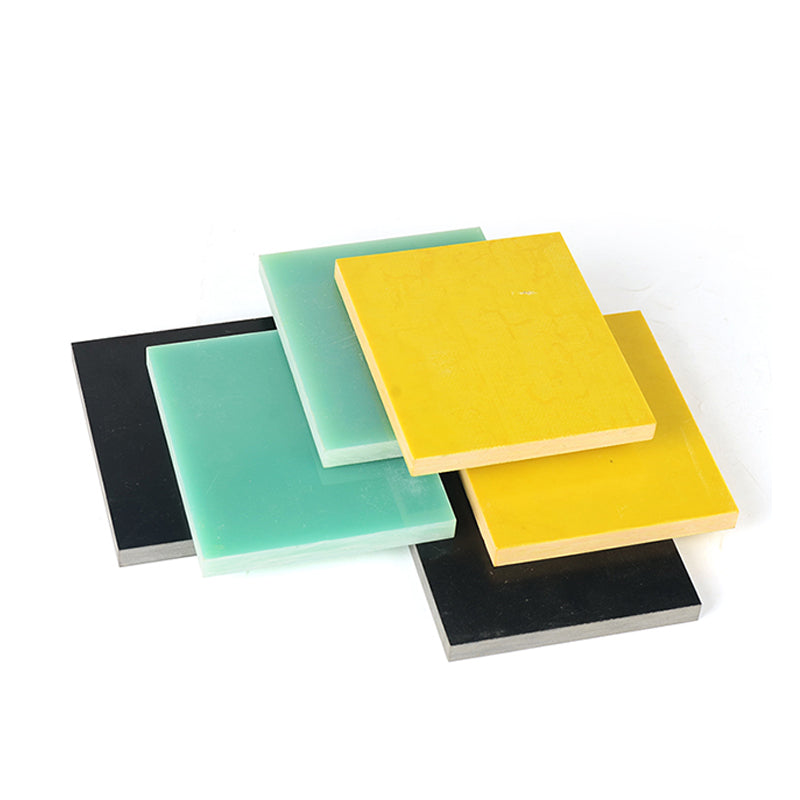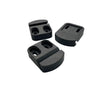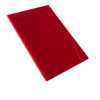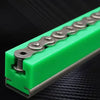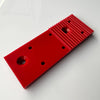The Many Applications and Uses of POM Plastic

POM (polyoxymethylene), also known as acetal resin, is a popular engineering-grade thermoplastic valued for its high strength, stiffness and durability. With its low friction and excellent dimensional stability, POM plastic has become a go-to material choice for mechanical and precision parts across industries.
This article will explore the key applications and uses of POM plastic across various sectors.

An Overview of POM Plastic Properties
Before diving into its applications, let's look at what makes POM, or polyoxymethylene, a versatile engineering plastic:
- High strength and rigidity - POM has a tensile strength of 68-72 MPa and flexural modulus of 2,800-3,100 MPa, giving it excellent mechanical properties. This makes it suitable for load-bearing parts.
- Low coefficient of friction - With a COF of 0.25-0.35, POM glides smoothly. This is useful for moving components in devices and machinery.
- High dimensional stability - POM has very low tendency to creep under load and absorbs low moisture. This helps it retain accuracy in dimensions.
- Chemical resistance - POM offers resistance to fuels, oils and solvents. It has limited resistance to strong acids and bases.
- Easy to machine and fabricate - POM machines well by milling, turning, drilling and tapping. It can also be injection molded with precision.
- Food contact compliance - POM grades are FDA/EU approved for food contact use. It resists food acids and has a smooth finish.
- Biocompatibility - POM has high purity and inertness enabling uses in medical devices and pharmaceutical equipment.
These properties make POM suitable for a wide spectrum of demanding applications across industries.

Key Application Areas for POM Plastic
Automotive Industry
The automotive sector is a major consumer of POM plastics. POM is widely used in fuel system components like fuel rails, fuel pumps and tank level sensors. It also finds use in power steering and transmission casings that require strength, dimensional accuracy and oil resistance.
Other automotive applications include windshield wiper gears, sunroof components, door handles and latches, pedals and various interior trims and housings, all benefiting from POM’s low friction properties. Connecting rods, fasteners, and other engine parts also utilize POM.

Consumer Electronics
POM plastic has made major inroads into consumer electronics due to its excellent dimensional stability. It is useful for precision components in cameras, laptops, mobile phones, and other devices that need to retain accuracy during service life.
POM is suitable for thin-walled connectors, battery compartments, sockets, and small housings that require tight tolerances. Low friction POM is also used for buttons, dials, sliders and other moving parts on electronics.
Food Contact Applications
With good chemical resistance and an FDA-compliant formulation, POM finds extensive use in food contact applications. POM is suitable for conveyor belts, star wheels, dosing pumps as well as bottle caps, food chutes and funnels used by the food industry.
It provides a smooth surface that allows easy flow of food while resisting fats, oils and food acids. POM’s high purity also prevents contamination.
Medical Devices
POM’s biocompatibility, purity and sterilizability open up applications in medical devices. POM is used to construct components for inhalers, insulin pens, orthodontic brackets, and other medical tools.
It also finds use in cardiology equipment, kidney dialysis machines and respiratory devices where chemically inert parts are needed. Smooth POM bushings and bearings enable precise movements in medical equipment.
Industrial Machinery
With its self-lubricating properties, POM is ideal for bearings, bushings, cams, gears and other moving part applications where high wear resistance is needed. It withstands heavy loads and abrasive conditions in industrial machinery.
POM is also suitable for Machinery parts like conveyor rollers, lifters, spiral drums that require good dimensional stability. The low friction surface minimizes drag and noise.

Domestic Appliances
In the world of home appliances, POM is used in components for coffeemakers, food processors, washing machines, dishwashers and vacuum cleaners.
As a high-performing plastic that resists household chemicals, POM is useful for parts like impellers, pump rotors, buttons and control knobs. In appliances needing quiet operation, POM bearings and gears provide noise-free motion.
Other Notable Applications
Beyond the major industries discussed, POM also lends its unique properties for miscellaneous uses like:
- Zippers - Low friction POM is suitable for zipper components needing smooth movement.
- Ballpoint pens - POM is used for precision tips and ink delivery systems.
- Measuring and testing instruments - POM makes stable frames and housings for accurate dimensions.
- Fasteners - POM nuts and bolts resist wear and retain torque settings.
The Versatility of POM Plastic
POM owes its popularity as an engineering plastic to its well-balanced mechanical properties that blend high strength, dimensional stability and low friction characteristics. This versatility lets POM perform well across a diverse range of applications from tiny electronic components to large bearings on heavy machinery.
Continued innovation by POM manufacturers has expanded the capabilities and uses of this material. Advancements like wear-resistant POM, electrostatic dissipative POM, UV-resistant POM and even food-contact compliant POM have opened new doors.
With its ever-growing list of applications across critical industries, POM has become an indispensable thermoplastic material for engineers. Its unique set of properties seem poised to find new uses as technology progresses. One thing is for certain - POM plastics will continue serving in mission-critical roles across many sectors for decades to come.


